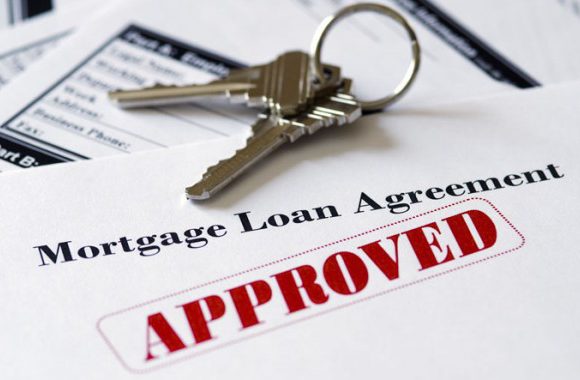Services
KCMI
How we do our work
Buying a New Home
With today’s market flooded with a number of mortgage products, you need the help of a mortgage professional to make the right decision. In case you are a first-time homebuyer or even if it’s your second time around, consulting a mortgage expert will prove extremely beneficial.
As a first time home buyer, you are usually unaware of the financing plans that are available. You must know how to pick the right one for your specific needs along with the legalities involved. I can assist you by providing the right advice, and making the application process lucid, simple and error-free.
Even if you have done this before, you might not be well informed of the latest rates and packages available. To ensure the mortgage you choose is tailor-made according to your needs, get in touch with me at the earliest.
Just fill in this simple online form with your details and click submit, and I will get back to you with a mortgage solution that best suits your requirements.

Pre-Approvals
Pre-Qualified, Pre-Approved… What’s the Difference?
When you’re pre-qualified for a mortgage, a lender has simply given you a good idea of how much you may be able to finance to buy your home.
When you’ve got a pre-approved mortgage, a lender has made an actual commitment (subject to conditions such as a property valuation) to loan you money. Mortgage pre-approval should be your first step when you’re seriously looking for a home to buy.
Why get pre-approved for a mortgage?
You’ll find house-hunting is easier with the advantages of mortgage pre-approval:
- You’ll save time, seeing only homes you can afford.
- You can better manage your money, knowing your monthly payment amounts, as well as how much your down payment will be.
- Real estate agents will serve you better because they know you’re serious and ready to buy.
- When you make an offer to purchase, the seller is more likely to give it serious consideration because you have solid financial backing.
- Your pre-approved status may give you more negotiating power with a seller.
- Your mortgage rate will be locked in against increases for 120 days with Capital Mortgages, if you select a fixed rate term (and it can go lower if rates go down).
- There’s no cost to you and you’re not obligated to accept the mortgage.
- Best of all, at Capital Mortgages, we’ll respond within 24 hours of receiving your request to start your online mortgage pre-approval.
What happens in the pre-approval process?
- You and your mortgage specialist will discuss your financial strategy and needs, mortgage amount, down payment, purchase price, etc.
- You’ll learn about the various available mortgage options (fixed vs. variable rate, interest terms, payment options, amortization, etc.) and discuss which of them best suit your needs.
- With your consent, you mortgage specialist will take an application, which will require you to provide details on such items as employment, income, assets, down payment (if applicable) and liabilities.
- You’ll give the lender permission to obtain a credit bureau report.
- Your mortgage specialist will advise you about the documentation (income confirmation, down payment confirmation, etc.) you’ll need to supply upon conditional approval of your mortgage. Any conditions must be met for your mortgage to be fully approved.
Be prepared for pre-approval.
You’re under no obligation when you’re pre-approved, but you should still feel comfortable with the amount and terms of your pre-approved mortgage. That’s why it’s vital that you review all your personal expenses and have some idea of your future expenses before you talk with a mortgage specialist about pre-approval.


Mortgage Renewals
Your business is important to us.
Whether you’re renewing your mortgage for the first time or the last time, we’re here to help you save money with the right mortgage options for your current and future needs.
Renewing Your Mortgage – How it Works
Renewing your mortgage is simple! Here’s how it works and a quick summary of some things you can do to make it even easier:
Step 1 : Start thinking about your needs and goals.
If you’re close to renewal, now is a great time to review your financial goals and your plans for the future. You might want to consider the following types of questions:
Has your financial situation changed since your last renewal?
Are you planning any home renovations or will you need additional funds?
Will you be moving within the next year?
Do you prefer fixed or variable rates, or are you unsure?
Renewing for the first time? Have questions?
Call us anytime day or night at 416-335-KCMI(5264) or toll free +1 855 440 KCMI(5264)
Step 2 : Consider renewing early!
We’ll contact you about 120 days out from your renewal date to discuss your current mortgage needs. (You can also call or visit us.) You can renew early at this point (or any time up to your renewal date), or you can wait and consider your options.
If you renew early, you’ll be able to lock in at current interest rates even sooner – which could save you thousands of dollars in interest if rates rise before your renewal date.
Step 3 : Time to renew if you haven’t already!
About three weeks before your renewal date, we’ll send you a renewal letter in the mail. If you have questions about your renewal rate and term, you can give us a call or visit one of our offices.
When you renew your mortgage at maturity, you are protected from an increase in interest rates, for the interest type and term you selected, in the 30-day period prior to your regularly scheduled renewal date. And, if the interest rate changes before your actual mortgage renewal date, you’ll automatically receive the lower rate for the term and type you chose.
It’s that simple!
Home Equity Line of Credit
What is a HELOC?
If you need to borrow money to pay off debts or make a purchase, a home equity line of credit (HELOC) can be extremely useful. A HELOC is a revolving credit line secured by the equity in your home. This is an open ended loan that can be paid down or charged up for the term of the loan, very similar to a credit card.
A HELOC differs from a conventional home equity loan in that the borrower is not advanced the entire sum up front, but uses a line of credit to borrow sums that total no more than the credit limit, similar to a credit card. A HELOC may have a minimum monthly payment requirement (often “interest only”); however, the debtor may make a repayment of any amount so long as it is greater than the minimum payment (but less than the total outstanding).
Another important difference from a conventional loan is that the interest rate on a HELOC is variable. The interest rate is generally based on an index, such as the prime rate. This means that the interest rate can change over time. Homeowners shopping for a HELOC must be aware that not all lenders charge the same rate on their line of credits.
A popular reason for HELOCs is their flexibility, both in terms of borrowing and repaying on a schedule determined by the borrower.
Because the underlying collateral of a home equity line of credit is the home, failure to repay the loan or meet loan requirements may result in foreclosure. As a result, lenders generally require that the borrower maintain a certain level of equity in the home as a condition of providing a home equity line.
How do I aquire a HELOC?
With a HELOC, we will approve you for a specific amount of credit – the maximum amount you may borrow at any one time under the plan. In determining your credit limit, your income, debts, credit score and other financial obligations will be reviewed. An appraisal will likely be required to determine your home’s market value, but only about half of the time. (This generally depends on just how much equity you intend on taking out.) Your credit limit will be based on a percentage of your home’s appraised value.

Refinance Your Property
If you need access to additional funds, using the equity in your home can be a lower cost way to borrow the money than taking out a traditional loan. For example, you can use your home equity to:
- Renovate your home
- Buy an additional property
- Invest in stocks
- Buy a car or boat
Another common reason for refinancing a mortgage is to consolidate debt such as higher interest credit card balances and loans. By consolidating these debts into your mortgage at a lower interest rate, you can save money and have all your debt in one place. Plus, our pre-payment options give you the flexibility to pay off your loan more quickly.
Mortgage refinance is becoming a popular financial remedy, especially for those who are burdened by large monthly installments or multiple debts. Mortgage refinance can prove beneficial in several ways:
Helps obtain a lower fixed rate
The interest on a fixed rate mortgage that you took several years ago may have dropped drastically. Refinancing the existing mortgage will entitle you to avail of the reduced interest rate.
Convert an Adjustable Rate Mortgage into a Fixed Rate Mortgage
The interest rates on an adjustable rate mortgage (ARM) might be low initially, but the fluctuations are unpredictable. Many find these constant variations in the interest rate taxing and prefer to refinance the mortgage into a secure, fixed rate one.
Consolidating multiple mortgages into one
Paying the installments of two or more mortgages at the same time can be quite a burden for most individuals. The best solution in this case is to consolidate the multiple mortgages into one, with a fixed monthly interest rate and a longer repayment duration.
Pay off other debts
The proceeds from your refinanced mortgage can be used to pay off credit card bills and other similar expenses.
Make cash provisions for emergency situations
You can refinance your existing mortgage to free a larger amount of cash, depending on your home equity. Since a mortgage is a secured loan, the interest applied is considerably lower than that of an unsecured loan.
Verico Capital Mortgages Inc. helps you decide whether it is the right time for you to refinance. The decision to refinance should be carefully evaluated to avoid any complications at a later stage. By carefully studying the status of your current mortgage and comparing it to your income and other debts, we help you pick the refinance solution that best suits your current financial status.
Verico Capital Mortgages Inc. offers some of the lowest and most competitive mortgage refinance rates in the market. Regardless of your requirement, whether it is to consolidate existing mortgages or obtain a better rate, we get you the best deal possible. Our experienced mortgage professionals, who have extensive knowledge of the mortgage industry, will provide the necessary guidance that you need in making the right refinance decision.

Buying Another Home
At Kapital Care Mortgages, we know that today’s busy lifestyle requires more home ownership options – whether it’s a second home in the city to reduce that weekly commute, or a cottage at the lake for weekend getaways. With our access to Vacation/Secondary
Home Programs, Canadians can now purchase a second home with an affordable monthly payment with 5% down payment.
There are many options for consumers wishing to buy a second property for use as a recreational property, vacation home or as a second residence. A second residence is classified as any property where the client or his/her family intends to occupy the premises on a rent free basis. A second home is exactly that, a second home. A rental property is not considered to be a second home and would be subject to different qualification criteria.
Financing a second home or recreational property is farely straightforward. Assuming that you will likely want to maximize the amount of financing you can get on your second home or recreational property, this may require a higher ratio mortgage.
Basic Requirements for Secondary Homes / Vacation Homes
Acceptable loan purpose
- Homes available for purchase and refinance
- Program does not provide for the purchase of investment, rental pool or timeshare properties; therefore, incidental rental income will not be used for qualification purposes.
Loan-to-value ratio limits
- Properties: 95% LTV (Purchase) and 95% LTV (Refinance)
Max Loan Amounts
- No Maximum
Eligible properties
Type A Properties (Secondary Homes):
- Property characteristics must comply with the Insurer First Mortgage Owner Occupancy Program
- Up to two units Maximum
- Available for purchase and refinance
Type B Properties (Vacation Homes):
- Property characteristics same as Type A properties except for the following;
- Property need not be winterized
- May have seasonal access (road not plowed during winter)
- One unit maximum
- Available for purchase only
Terms/qualifying interest rates
- 6 months up to 25 years – Fixed, standard variable, capped variable and adjustable rate mortgages are permitted
- For terms less than three years, the qualifying interest rate is the greater of three-year posted rate or contract rate
- For terms of three years or more, we use the contract rate
Amortization Options
- Up to 30 Years (Type A properties)
- Up to 25 Years (Type B properties)
Premium Rates
LTV Ratio / Type A properties* / Type B properties
Up to 65% 0.50% 1.25%
65.01% – 75% 0.65% 1.40%
75.01% – 80% 1.00% 1.75%
80.01% – 85% 1.75% 2.50%
85.01% – 90% 2.00% 2.75%
90.01% – 95% 2.75% N/A
Premium is non-refundable
- a .20% premium surcharge will be applied to the above premium rates for every 5 years of amortization beyond the traditional 25-year mortgage amortization period
Portability top-up rates:
LTV Ratio / Type A properties* / Type B properties
Up to 65% 0.50% 1.25%
65.01% – 75% 2.25% 3.00%
75.01% – 80% 2.75% 3.50%
80.01% – 85% 3.50% 4.25%
85.01% – 90% 4.25% 5.00%
90.01% – 95% 4.25% N/A
Premium is non-refundable
- a .20% premium surcharge will be applied to the above premium rates for every 5 years of amortization beyond the traditional 25-year mortgage amortization period.









